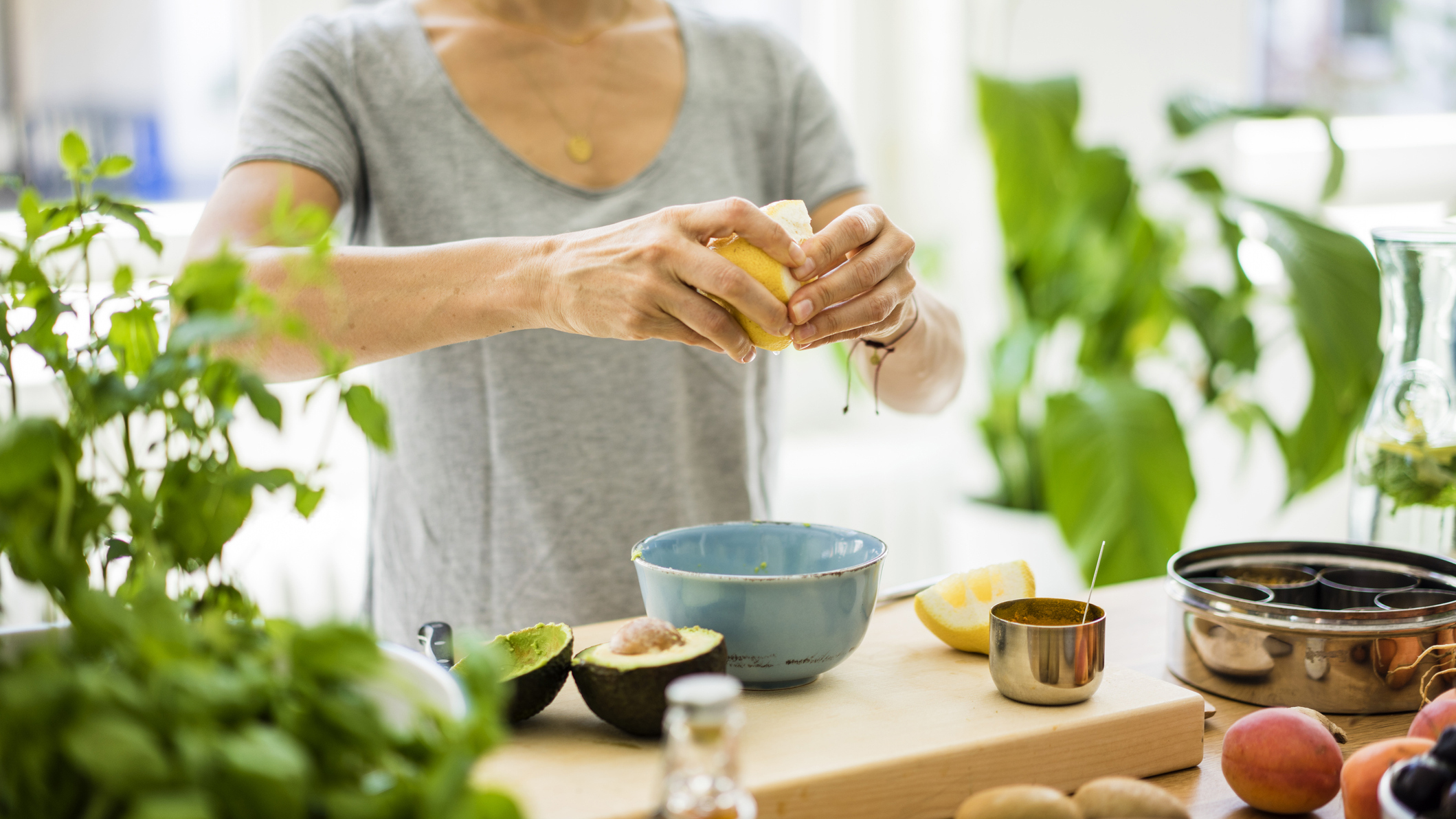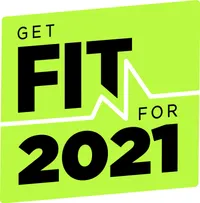
Start your week with achievable workout ideas, health tips and wellbeing advice in your inbox.
You are now subscribed
Your newsletter sign-up was successful
Veganism has never been hotter. A record 400,000 people worldwide signed up to the Veganuary movement in January 2020 - with even more expected to take part this year.
Motivating factors that drive people to embark on a plant-based, animal-product-free diet include reducing the demands placed on the planet by meat production and an all-round healthier approach to eating.
However, before you dive headfirst into one of the best vegan cook books this Veganuary, it’s important to be aware of the potential pitfalls of a plant-based diet - one of which is a reduced intake of certain nutrients that are essential for good health.
Without animal foods, vegans can be missing a source of iron, vitamin B12 and selenium, while calcium, omega-3 fatty acids and iodine are most abundant in dairy products and oily fish. Below we’ve outlined these in more detail, giving advice on how you can ensure you can get enough of them by alternative means.
And, as with any major change to your diet, it’s worth consulting a doctor before embarking on Veganuary.
Omega-3
Omega-3s protect you from heart disease and support your brain function and vision. The richest source of the omega-3 fatty acid, called docosahexaenoic acid (DHA) is oily fish like salmon or mackerel. Whilst you can get another type of omega-3 fatty acid from vegan foods like nuts and seeds these are short chain fatty acids and not as beneficial as DHA. Look for supplements sourced from algae, such as Vegetology Opti 3 - which makes it onto our list of the best fish oil supplements.
Calcium
Calcium is vital for bone and dental health but also for the nervous system and muscle development. By far the richest source of calcium is milk and dairy foods so make sure that your alternative choice - be it soya, oat, almond or rice milk - is fortified with calcium. Other vegan-friendly calcium sources include kale, rocket and watercress.
Start your week with achievable workout ideas, health tips and wellbeing advice in your inbox.
Vitamin B12
Studies confirm low vitamin B12 blood concentrations in vegetarians and especially in vegans. The Vegan Society recommends a B12 supplement (a good vegan option is Viridian Woman 40+ Multi, which features on our list of the best vitamins for women over 50) or eating two to three portions of B12-fortified foods a day, such as fortified breakfast cereals and some dairy alternatives to milk or spreads.
- Best menopause supplements: beat hot flushes, mood swings and vaginal dryness
Iron
Iron is essential for a healthy blood supply, brain function and your immunity. If you’re vegan, ensure you eat some iron-containing food at most sittings and snacks, along with some food or drink containing vitamin C, which helps your absorption of iron (not tea or coffee, which have the opposite effect). Vegan iron sources include legumes, tofu, nuts, seeds, dried fruits, quinoa and amaranth.
Iodine
Iodine helps your thyroid gland to work properly, which has a direct impact on your metabolic rate and the overall health of your body cells. It’s found in milk, eggs, fish and shellfish and it’s very difficult to know how much iodine you’re getting from plant foods alone. If you rely on supplements to maintain your iodine levels make sure you take no more than 0.5mg/day, as higher levels than this can be harmful to your thyroid.
Healthy eating kitchen essentials:
- Best blenders: The top smoothie makers, juicers and food processors
- Best grill for perfectly grilled veggies
Selenium
An important antioxidant which protects your body cells and supports your immunity. Plant-based foods containing selenium include nuts, especially Brazil nuts and cashews, and some seeded and wheatgerm breads. Some cereals also contain selenium, such as puffed wheat cereals, cornflakes and Shredded Wheat.
Get Fit for 2021 with Fit&Well
As the sun rises on a brand new year, Fit&Well is here to help put last year behind you and make 2021 your happiest, healthiest yet. Here at fitandwell.com, we’ll be bringing you a wealth of workouts, diet plans and expert advice throughout January to help kick-start your health and fitness goals.
Launched in 2020, Fit&Well.com is all about helping you meet your health and fitness goals in ways that are fun and achievable. With news and features on fitness, weight loss, running, nutrition, yoga, wellness and more, we're committed to helping you wherever you are on your fitness journey. We break down the best fitness tech, with reviews, buying guides and the latest deals on fitness and wellness kit, from dumbbells to diffusers.
We cater for all difficulty levels here. It doesn't matter if you're a beginner in the world of fitness or you're gearing up for your tenth marathon: we're all moving towards the same goal – creating a healthier, happier you. From guides on getting started doing walks around the block, to creating the perfect work-from-home space, to eating to fuel your first triathlon. It's all here.


